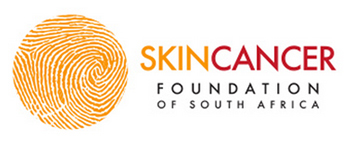Do something for yourself this Spring Day and get yourself screened for skin cancer
National Skin Cancer Screening Day now set to become a reality for South Africans
20 August 2015
On 1 September 2014 several of South Africa’s leading dermatologists participated in a pilot project, which involved the free skin cancer screening of a number of South Africans.
According to Dr Derek Odendaal, President of the South African Society for Dermatological Surgery, and one of the founder members of the Skin Cancer Foundation of South Africa (SCFSA), last year’s landmark event has laid the foundations for a national, annual skin cancer screening day which will now take place on the first day of spring every year.
“With this initiative, the SCFSA is calling on South African dermatologists to take part in a National Skin Cancer Screening Day but more importantly, we are urging the public to get themselves screened and to become sun savvy before it is too late,” asserts Odendaal.
With National Skin Cancer Screening Day, it is the aim of the SCFSA to mobilise dermatologists in order to reach as many South Africans as possible – particularly those who would ordinarily not be afforded the opportunity of being screened for skin cancer. The ultimate idea is to raise awareness and to encourage early detection for what has become a life-threatening disease.
Commenting on the objectives of National Skin Cancer Screening Day, co-founder and specialist dermatological and laser surgeon, Dr Marc Roscher, said that it is the aim for the SCFSA to raise public awareness through the sharing of information that will assist in the prevention, early detection and treatment of skin cancer. “To do this, we as dermatologists have pooled our resources to work together to help raise awareness for the dangers associated with excessive exposure to the sun.”
“Few people realise this but SA has the second highest incidence of skin cancer in the world. Because of the tremendous shortage of dermatologists in our country, as much as 79 percent of the population will never be afforded the opportunity to be screened for skin cancer. With the aid of National Skin Cancer we are wanting to ensure that those who are unable to afford private care, will not be left unscreened and compromised because of a disease that can so easily be treated,” added Dr Roscher.
According to Dr Roscher, SCFSA has secured support from many more dermatologists this year and is hoping to double, if not treble, the number of patients who were screened during the 2014 pilot programme.
The SCFSA will provide dermatologists with skin cancer screening protocols and the necessary paperwork in order to standardise the screenings. All information obtained during the screenings will be collated and passed on to the SCFSA for analysis. Information will be shared as part of a post-screening campaign.
“We are inviting the public to visit our website http://skincancerfoundation.org.za/doctor-resources/ in order to set up an appointment with one of the participating dermatologists. Names and contact details of dermatologists are published on the website and appointments can be set up on a first come, first served basis. Given the intensive nature of the screening, each participating dermatologist will be able to see only ten patients on 1 September.”
The SCFSA has appealed to all dermatologists to make themselves and their resources available to screen patients on a pro-bono basis. Mole-mapping procedures will not be undertaken, but dermatologists will specifically guide and inform patients what to look out for. Patients will also be taught how to inspect themselves and their families for early signs of skin cancer, while sharing the best prevention methods with them.
“Skin cancer is growing at such a disturbing rate that we are urging members of the public to participate in this important, potentially life-saving initiative. Now is the time to become sun savvy. Do something meaningful for yourself this Spring Day and get yourself screened for skin cancer by a qualified healthcare professional,” concludes Dr Roscher.
Sunburn advice from the SCF
Sunburn essentially is an inflammation of the skin that has been caused by over exposure to the harmful rays of the sun. This in itself can create a number of complications. For example, when temperatures soar, protection is needed against heat rash, heat stroke and sunburn.
A sunscreen or total sunblock is an important accessory when heading outdoors. If possible, apply sunscreen 30 minutes before going out into the sun, since it takes that long to be absorbed into the skin. The SPF (sun protection factor) in a sunscreen provides an indication of the amount of protection being offered. For example, a tested SPF of 23 implies that the user can remain in the sun twenty-three times longer than without protection, before burning.
Before applying sunscreen, check the expiry date on the bottle and replace it if necessary. Remember to shake the bottle before applying, and reapply lotion after sunbathing, towel drying, or after sweating heavily. In the event of over exposure to the sun, apply cool tap water compressed for 10 to 15 minutes, three or four times per day, until the redness subsides. This can provide immense relief since the evaporating water will moisten and cool the skin.
A sunburn relief spray or moisturising cream will further ease discomfort. Doctors strongly caution against using petroleum jelly on a burn, since it will seal out the air needed to ensure healing. In the case of severe sunburn, blistering, pain, nausea or chills, a doctor should be called immediately. Steroid ointments or creams may be prescribed, and large blisters might have to be drained and dressed.
- Don’t wait for a healthy red glow to appear before reaching for your hat or sunblock. In fact, most sunburns do not reach their peak colour until six to twenty-four hours after sun exposure!
- Always wear protective clothing, hats and shirts before going out into the sun;
- Even 30 minutes in the sun without protection is too long!
- Remember, as you move inland, above sea level, the sun’s rays become more intense;
- Avoid being out in the sun between 11h00 and 15h00 when the sun is at its strongest;
- Don’t skip the sunscreen when it is slightly overcast, particularly not if you are on the beach, since ultraviolet light can penetrate light cloud cover;
- Exposure to the sun while overdressed only adds to skin distress. So do thick lotions and oils, such as petroleum jelly, which prevent moisture evaporation and therefore block pores resulting in heat rash;
- Beware of the glare, particularly at the seaside, where you are unlikely to find natural shade. Do not rely on a beach umbrella alone since it cannot protect the very young or elderly from the reflected glare of sun on sand. Instead, pitch a small beach tent, which will provide adequate shelter;
- UVA rays pass through glass. A person sitting near a window (unless tinted for sun screening) is also susceptible to the damaging rays of the sun.
Notes to editors
Vision and mission of the South African Skin Cancer Foundation:
Skin cancer is one of the most common cancers worldwide, and this is no different in South Africa. To address the growing incidence of skin cancer in this country, the South African Skin Cancer Foundation (SCFSA) was created with the aim of implementing a National Skin Cancer Screening Day, which will be held in September every year. Facilitating these events and projects requires special skill and insight, which the SCFSA will provide.
With the aid of extensive media coverage, it is our aim to educate and inform the public of South Africa about the dangers of skin cancer and how to avoid it. It is also the role of the foundation to assimilate and distribute information about skin cancer and its symptoms to the lay public, press and medical professionals. A lack of data about skin cancer in South Africa is a pressing concern, and would also form a key component of the SCFSA and its activities.
The foundation has resolved to operate in a manner similar to SCFs in other parts of the world, and to interact and cooperate with any groups, individuals and societies that share our vision and can benefit from or contribute to the work that is being done.
Issued by: Martina Nicholson Associates (MNA) for the Skin Cancer Foundation of South Africa (SCFSA)
Contact: Martina Nicholson, Sarah Wilson, Graeme Swinney or Meggan Saville
Telephone: (011) 469 3016
Email: martina@mnapr.co.za, sarah@mnapr.co.za, graeme@mnapr.co.za, or meggan@mnapr.co.za

